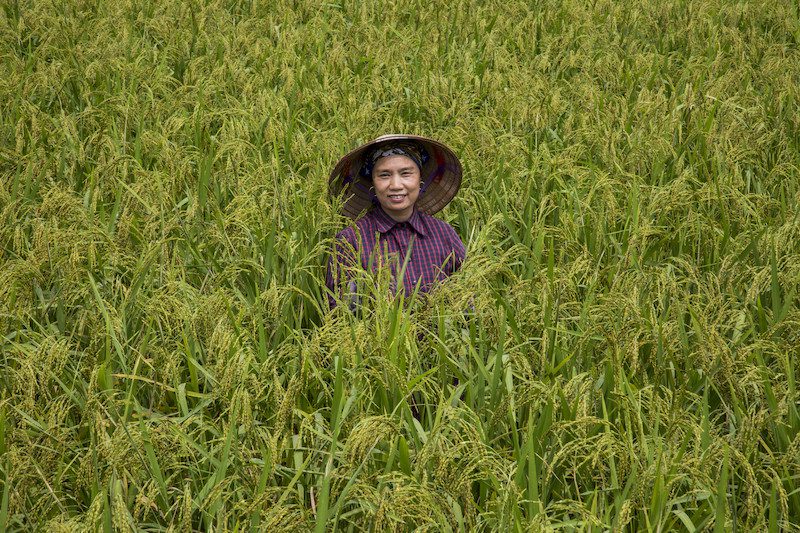In northern Vietnam, the only thing sweeter than sticky rice… is more sticky rice. So Oxfam Vietnam is helping local rice farmers work smarter and grow more.
Oxfam Vietnam teamed up with the Vietnamese Government to promote new farming techniques that empower farmers to produce more rice. Known as the System of Rice Intensification (SRI), the initiative has introduced more efficient and productive new ways of managing plants, seeds, soil, water and nutrients.
Oxfam Vietnam wants the wider farming community in Vietnam to reap these productivity gains too. So we’ve trained a special group of key farmers like Duong Thi Thanh (pictured above) to become mentors and pass on their new techniques to other farmers.
Since adopting the SRI techniques, Thanh’s farming livelihood has changed dramatically. She explains, “We learnt how to select seeds to plant. In the past we did not do this, we just planted all the seeds we had. Now, we only choose the highest quality seeds.”
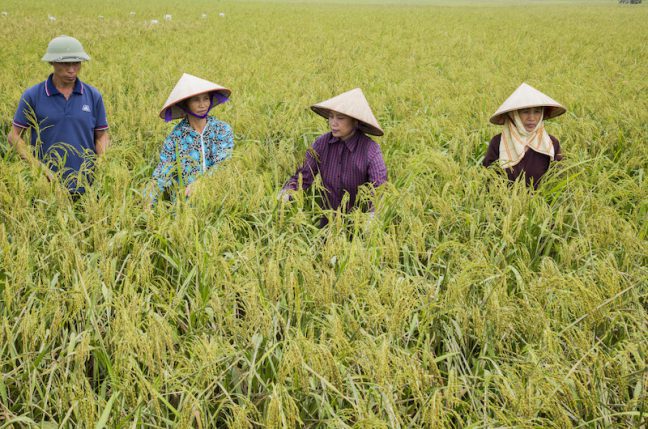
“We plant using about one tenth the amount of seed. It takes less labour to transplant the seedlings so we can spend more time on taking care of the paddy field after we transplant when the plants are young.”
“When using SRI, we plant in wider rows — 36cm to 40cm apart. This reduces labour, the amount of seed, and increases yield. The quality of rice is improved significantly.”
Thanh’s community was initially reluctant to use the new farming methods. She says, “At first, it was difficult and we had a lot of concerns about trying SRI. Using a new method that uses less seed, we worried about the production of the crop … as a local leader, I wanted to be a pioneer, to try new ideas — but what if it fails?
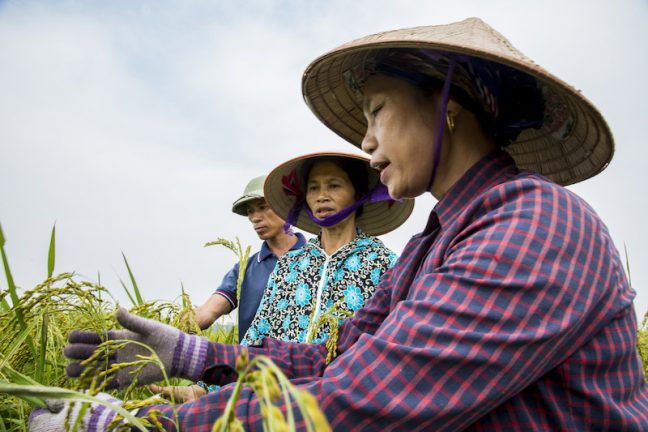
“I was worried because previously we used a lot of seed so we could ensure some level of productivity. But I was determined to try the new method.
“So we tested SRI cultivation as a pilot to see how it works, and we tried it in one paddy field to train all the farmers.
“In time, they could see it took less labour, less seed, with the same or better productivity.”
These days, Thanh encourages her neighbours in her village north of Hanoi to make the switch. She explains, “I’ve been trying to help other farmers to use SRI practices to ensure high quality and good productivity. Now, more than 100 farmers in this area are using SRI.”
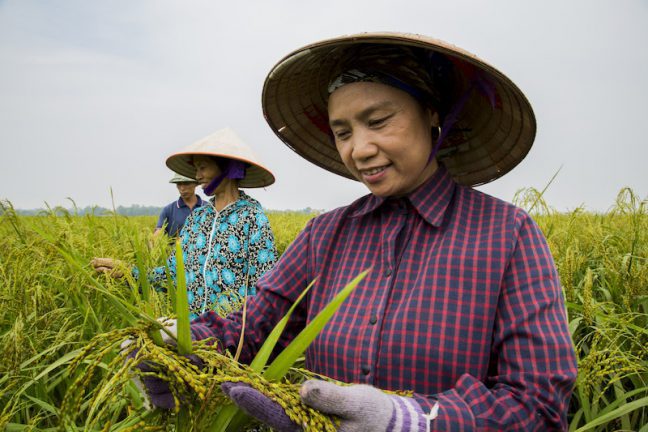
The results have been overwhelmingly positive. Thanh reports that her yields have grown by about 30kg per harvest and the rice is now “growing stronger and growing taller.”
At this rate, she’ll be sticking with the new farming techniques.
“Previously, we grew enough rice to live, but could not sell any to earn money,” Thanh says. “Now, we grow sticky rice, and our price is better because it is organic.”
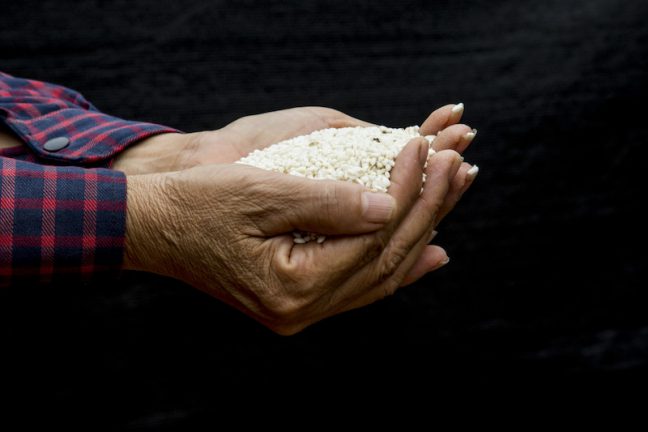
“We also produce and sell a local sticky rice sauce at local festivals, along with sticky rice cakes and other products,” she adds. “We established a group to market rice, which is increasing our income and improving our living standards because we have more money to buy things.”
“We used to grow just enough rice to eat, but now we can sell rice and make cakes — and sauce we can sell to make money too.”
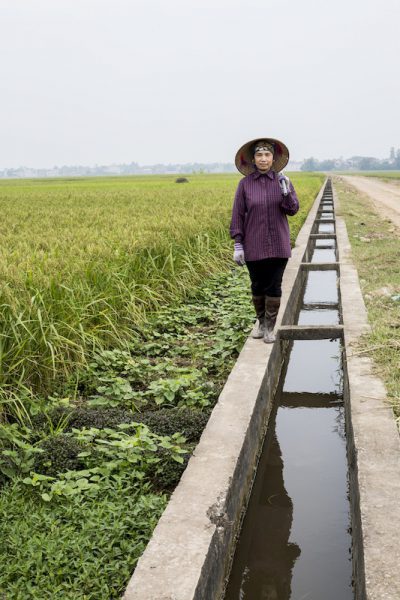
Thanh has a genuine knack for community leadership. She says, “I want to improve my own work, but I am also making my best efforts to help the community and its people — to help them to change and grow more rice.”
“To be a leader, I need to be accountable and responsible. I need to contribute to my own household, but also the entire community.”
“I want to share my knowledge and help others improve their standard of living.”
